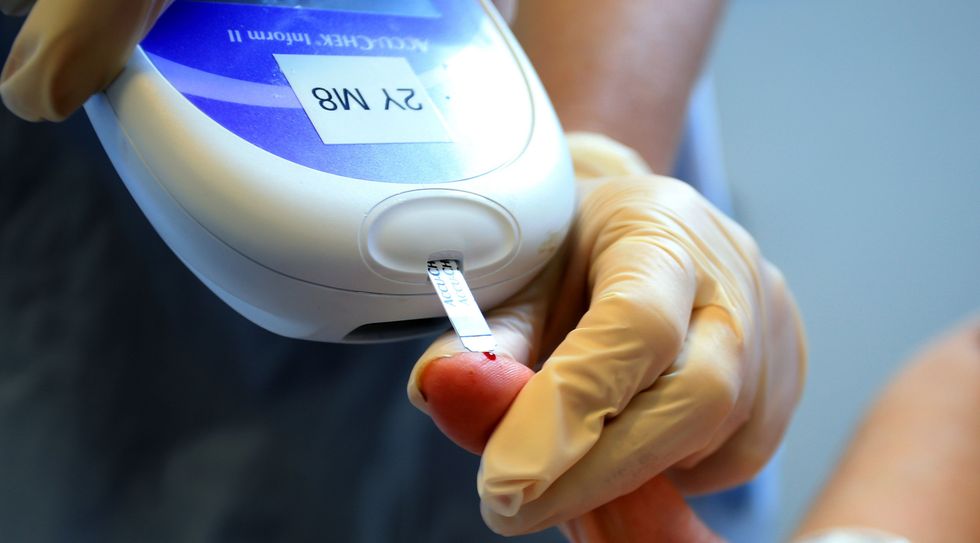Ultra-processed foods linked to cancer, heart disease and 30 other illnesses, finds world's largest review

- Largest review to date links ultra-processed foods to 32 poor health outcomes
- They account for 58 percent of total daily energy intake in some high-income countries
- Researchers claim manufacturers choose profitability over public health
Don't Miss
Most Read
Latest
Binging on ultra-processed foods may increase the risk of more than 30 devastating illnesses, including cancer and heart disease, according to the world's largest review.
The findings, published by The BMJ, reveals that diets high in ultra-processed foods ravage every part of the body and researchers are calling for urgent measures to be introduced to reduce consumption.
More than half of the energy (calories) an average person in the UK eats and drinks comes from ultra-processed foods, which are packed with many additives and ingredients not typically used in home cooking, such as preservatives, emulsifiers, sweeteners, and artificial colours and flavours.
Some of the worst offenders include:
- Ice cream
- Ham
- Sausages
- Crisps
- Mass-produced bread
- Breakfast cereals
- Biscuits carbonated drinks
- Fruit-flavoured yogurts
- Instant soups
- Some alcoholic drinks including whisky, gin, and rum

Many previous studies and meta-analyses have linked highly processed food to poor health outcomes
|Getty Images
Many previous studies and meta-analyses have linked highly processed food to poor health outcomes, but the latest review is the most comprehensive, drawing on 45 distinct pooled meta-analyses from 14 review articles associating ultra-processed foods with adverse health outcomes.
What the did the researchers find out?
The researchers classified the the evidence they sifted through as either convincing, highly suggestive, suggestive, weak, or non-existent. They also assessed the quality of evidence as high, moderate, low, or very low.
Overall, the results show that higher exposure to ultra-processed foods was consistently associated with an increased risk of 32 adverse health outcomes.Convincing evidence showed that higher ultra-processed food intake was associated with around a 50 percent increased risk of cardiovascular disease-related death, a 48-53 percent higher risk of anxiety and common mental disorders, and a 12 percent greater risk of type 2 diabetes.
Highly suggestive evidence also indicated that higher ultra-processed food intake was associated with a 21 percent greater risk of death from any cause, a 40-66 percent increased risk of heart disease-related death, obesity, type 2 diabetes, and sleep problems, and a 22 percent increased risk of depression.
Evidence for the associations of ultra-processed food exposure with asthma, gastrointestinal health, some cancers and cardiometabolic risk factors, such as high blood fats and low levels of "good" cholesterol remains limited.
The researchers acknowledge that umbrella reviews can only provide high-level overviews and they can't rule out the possibility that other unmeasured factors and variations in assessing ultra-processed food intake may have influenced their results. However, their use of rigorous and prespecified systematic methods to evaluate the credibility and quality of the analyses suggests that the results withstand scrutiny.
In light of their findings, they concluded: "These findings support urgent mechanistic research and public health actions that seek to target and minimise ultra-processed food consumption for improved population health."
The picture might be more nuanced than it seems. A study published last year suggests that avoiding ultra-processed foods could present its own health risks.
LATEST DEVELOPMENTS
- How Britain became addicted to painkillers
- Talking speed could be an early warning sign of dementia
- UK drug regulator set for major probe after 'failing to act on Covid vaccine issues'

Ultra-processed foods was linked to a 12 percent greater risk of type 2 diabetes
| PAThe study, led by academics from University College London (UCL), found that people who rule out foods because they’re ultra-processed food could be missing out on some healthier options.
The researchers looked at almost 3,000 different food items and compared their nutritional content with front-of-pack traffic-light labelling, and found that “not all ultra-processed foods had an unhealthy nutrient profile”, with over half having no red front-of-pack traffic lights (with a red traffic light suggesting they were high in fat, saturated fat, sugars and salt).
The most common ultra-processed foods with no red flags included sandwiches, high-fibre breakfast cereals, plant-based milk alternatives, milkshakes and white bread.
The authors said meat-free products, for example, are also healthy according to the traffic-light system, and are green on fat, saturated fat, sugar and amber on salt, though they would be considered ultra-processed foods.










